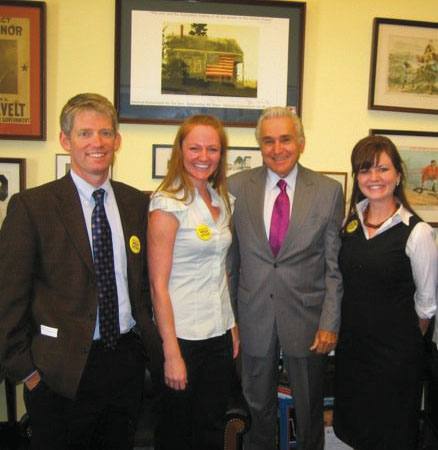|
2009 Congressional Hearing on America's Red Rock Wilderness Act On October 1, 2009, for the first time in 15 years, America’s Red Rock Wilderness Act -- the most comprehensive proposal for protection of Utah’s wild lands -- got a hearing in the U. S. Congress (before the Natural Resource Committee’s Subcommittee on National Parks, Forests and Public Lands). As expected, Utah’s entire congressional delegation spoke in opposition to the bill, as did Utah’s Lt. Governor Greg Bell. But, what was noticeably absent from the discussion was a condemnation of wilderness. Each Utah member of Congress acknowledged the importance of protecting wilderness. This is a far cry from the rhetoric we heard years ago opposing the very concept of wilderness. Speaking eloquently on behalf of Utah wilderness at the hearing was a diverse line-up of Utahns who demonstrated that support for wilderness stewardship in Utah now cuts across ideological and political boundaries. Those testifying included:
Clearly, Utahns are ready for more wilderness protection. A recent Dan Jones poll reflects that 60% of Utahns who have developed an opinion want to see 9 million acres or more of the federal lands managed by the Bureau of Land Management protected as wilderness. The wilderness debate in Utah has moved to a new level -- the question now is not about whether there will be more wilderness designated in Utah, it’s about how much and where.
|
Learn More
|

 Southern Utah Wilderness Alliance
Southern Utah Wilderness Alliance
Protecting Utah's Redrock Country

